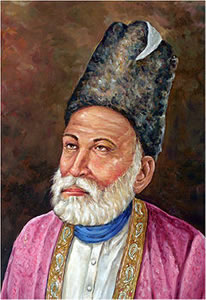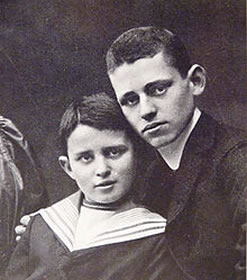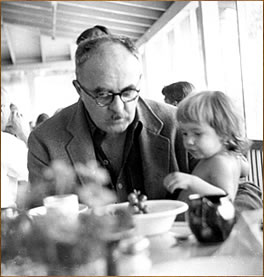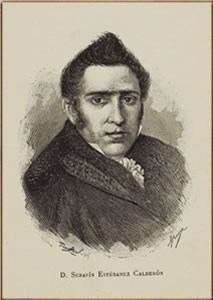De Indische dichter Mirza Ghalib (eigenlijk Asadullah Baig Khan) werd geboren op 27 december 1796 in Agra. Zie ook alle tags voor Mirza Ghalib op dit blog.
Heart it is, not a brick or stone
Heart it is, not a brick or stone
Why shouldn’t it feel the pain?
Let none tyrannize this heart
Or I shall cry again and again
Neither the temple, nor the mosque
Nor on someone’s door or porch
I await on the path where He will tread
Why others should compel me to go?
The illumined grace that lights up the heart
And glows like the midday sun
That Self that annihilates all sights
When then it hides in the mysterious net?
The amorous glance is the deadly dagger
And the arrows of emotions are fatal
Your image may be equally powerful
Why should it appear before you?
The rules of life and bonds of sorrow
In reality are the one manifestation
Before realizing the ultimate truth
How can then one attain liberation?
Love is laden with noble thoughts
Yet what remains is the carnal shame
Trust conscience the still little voice
Why do you want test the rival?
There the pride of modesty resides
Here dwells the social morality
How shall we meet, on which road
Why should he invite me to the abode?
True he is an atheist
Unfaithful and unchaste
Dear to who is faith and heart
Why should he then venture there?
Without the wretched “Ghalib”
Has any activity come to a halt?
What then is the need to cry?
What then is the need to brood?

Mirza Ghalib (27 december 1796 – 15 februari 1869)
De Duitse schrijver Carl Zuckmayer werd op 27 december 1896 geboren in Nackenheim am Rhein. Zie ook mijn blog van 27 december 2006 en ook mijn blog van 27 december 2009 en ook mijn blog van 27 december 2010.
Elegie von Abschied und Wiederkehr
Ich weiß, ich werde alles wiedersehn.
Und es wird alles ganz verwandelt sein,
ich werde durch erloschne Städte gehn,
darin kein Stein mehr auf dem andern Stein –
und selbst noch wo die alten Steine stehen,
sind es nicht mehr die altvertrauten Gassen –
Ich weiß, ich werde alles wiedersehen
und nichts mehr finden, was ich einst verlassen.
Der breite Strom wird noch zum Abend gleiten.
Auch wird der Wind noch durch die Weiden gehn,
die unberührt in sinkenden Gezeiten
die stumme Totenwacht am Ufer stehn.
Ein Schatten wird an unsrer Seite schreiten
und tiefste Nacht um unsre Schläfen wehn –
Dann mag erschauernd in den Morgen reiten,
der lebend schon sein eignes Grab gesehn.
Ich weiß, ich werde zögernd wiederkehren,
wenn kein Verlangen mehr die Schritte treibt.
Entseelt ist unsres Herzens Heimbegehren,
und was wir brennend suchten, liegt entleibt.
Leid wird zu Flammen, die sich selbst verzehren,
und nur ein kühler Flug von Asche bleibt –
Bis die Erinnrung über dunklen Meeren
ihr ewig Zeichen in den Himmel schreibt.

Carl Zuckmayer (27 december 1896 – 18 januari 1977)
Hier met zijn oudere broer Eduard rond 1906 / 1907
De Amerikaanse dichter Charles Olson werd geboren op 27 december 1910 in Worcester, Massachusetts. Zie ook alle tags voor Charles Olson op dit blog.,
Uit:Letter to Constance Wilcock
“My beloved,
…
Your special came last night but the fat letter has not arrived today, unhappy me! O darling I miss you so. Last night was hard to pass over without you. I had to drug myself to sleep by reading Prescott until the eyes were too tired to stand more. O yes, I now have a library card here, and I shall have the Nun’s letters so that we can read them together, darling of mine. In the branch where I got my card they did not have them. (The 42nd St will.) Instead I got a bad book on the Mayans with which I amused myself last night before I turned back to Prescott as nembutal! When you come I’ll have the best thing on the Mayans, the Conquest of Yucatan, by Blom. A few lines did come yesterday on the Indian! Not good enough to send you, really only notes groping along. But they show that what is going to be central is GOLD, perhaps as image only, maybe as subject too, for the greed of the Spaniards for it and the Indians confusion of the S as the breed of the Sun, the sons of white Quetzalcoatl do join somehow, and ironically.
Today it was your hair again which tangled my heart! and your long legs which snared my body! Do you feel a treasure house of moments and sharp sensations which our love has gathered into which, lonely and hungry, to dip and recall? Suddenly you will stand or move a certain way, your arms will raise, inside where he is you will feel afire, your lips will kiss in a way they have not kissed, you will look at me out of your eyes anew, you dive into the water different, it is that graveyard at Barnstable and the voices below us, or your hand held is all the world, or it is beside the bed at Ipswich when quickly we were in each others arms two Buddhas of desire. These things happen to me. It is always a birth. I love you, Constance.”

Charles Olson (27 december 1910 – 10 januari 1970)
Hier met dochtertje Kate
De Spaanse schrijver Serafín Estébanez Calderón werd geboren op 27 december 1799 in Málaga. Zie ook mijn blog van 27 december 2009 en ook mijn blog van 27 december 2010.
Uit: First Love (Vertaald door Emilia Pardo-Bazan)
„Her head-dress was strange but elegant; a compact group of curls plastered conewise one over the other covered her temples, and a basket of braided hair rose on the top of her head.
This old-fashioned head-dress, which was trussed up from the nape of her neck, disclosed all the softness of her fresh young throat, on which the dimple of her chin was reduplicated more vaguely and
delicately.
As for the dress–I do not venture to consider whether our grandmothers were less modest than our wives are, or if the confessors of past times were more indulgent than those of the present; I am inclined to think the latter, for seventy years ago women prided themselves upon being Christianlike and devout, and would not have disobeyed the director of their conscience in so grave and important a matter. What is undeniable is, that if in the present day any lady were to present herself in the garb of the lady of the portrait, there
would be a scandal; for from her waist (which began at her armpits) upwards, she was only veiled by light folds of diaphanous gauze, which marked out, rather than covered, two mountains of snow, between which
meandered a thread of pearls. With further lack of modesty she stretched out two rounded arms worthy of Juno, ending in finely molded hands–when I say _hands_ I am not exact, for, strictly speaking, only
one hand could be seen, and that held a richly embroidered handkerchief.“

Serafín Estébanez Calderón (27 december 1799 – 5 februari 1867)
Zie voor onderstaande schrijver ook mijn blog van 27 december 2010.
De Oostenrijkse schrijver en essayist Klaus Hoffer werd geboren op 27 december 1942 in Graz. Zie ook mijn blog van 27 december 2009.
